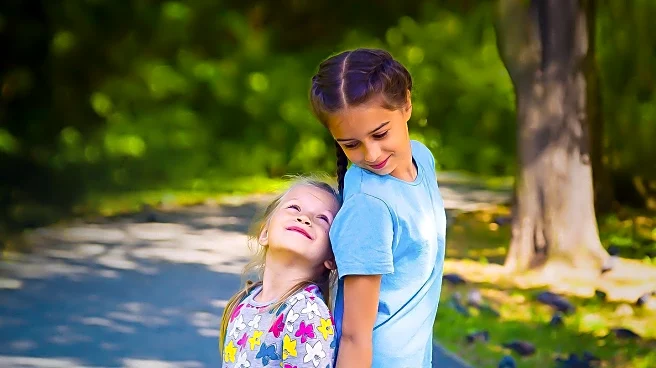What is the story about?
What's Happening?
Parents often struggle to engage their children in meaningful conversations about their school day, frequently receiving short or non-descriptive responses like 'fine' or 'good.' Experts suggest that the traditional question 'How was school?' is often perceived by children as routine and uninspiring, leading to these minimal replies. Instead, psychologists and family therapists recommend using open-ended questions that invite more detailed responses. These questions should be specific, respectful of the child's emotional state, and timed appropriately to avoid overwhelming them after a long day. The goal is to create ongoing opportunities for connection rather than forcing a debrief immediately after school.
Why It's Important?
Effective communication between parents and children is crucial for building trust and understanding. By adopting these new strategies, parents can foster a more open and supportive environment, encouraging children to share their experiences and emotions. This approach not only helps parents stay informed about their child's life but also supports the child's emotional development by validating their feelings and experiences. As children grow, maintaining this open line of communication becomes increasingly important, especially during adolescence when the need for privacy and independence grows.
What's Next?
Parents are encouraged to experiment with different conversation starters tailored to their child's age and personality. For younger children, questions might focus on specific events or feelings, while older children might respond better to questions about their social interactions or personal achievements. Parents should also be attentive to non-verbal cues indicating a child's readiness to talk and be prepared to listen without immediately offering solutions. Over time, these practices can help build a stronger, more communicative relationship between parents and their children.
Beyond the Headlines
This shift in communication strategy highlights broader cultural changes in parenting, emphasizing emotional intelligence and empathy. It reflects a growing understanding of the importance of mental health and emotional well-being in child development. By modeling openness and active listening, parents can teach their children valuable communication skills that will benefit them throughout their lives.















